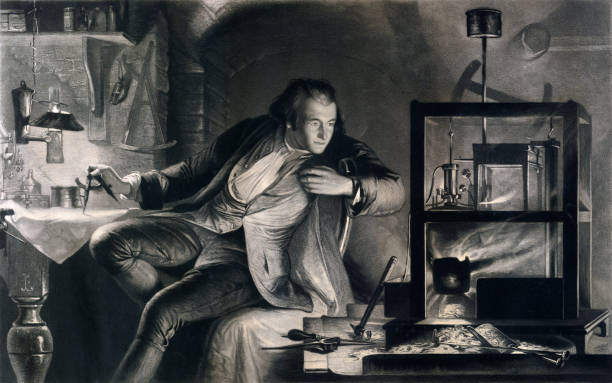Innovation has been the driving force behind the progress of human civilization. Throughout history, countless inventions and discoveries have fundamentally changed how we live, work, and interact with the world around us. These innovations, spanning various fields such as technology, science, and culture, have not only improved the quality of life but also reshaped societies and economies. This article explores some of the most significant historical innovations and their lasting impact on the world.

The Printing Press: Revolutionizing Communication
One of the most transformative innovations in history is the invention of the printing press by Johannes Gutenberg in the mid-15th century. Before its invention, books were copied by hand, a labor-intensive process that made them expensive and rare. Gutenberg’s printing press introduced movable type, which allowed for the mass production of books and other printed materials.
The printing press had a profound impact on European society. It facilitated the spread of knowledge and ideas on an unprecedented scale, leading to the rapid dissemination of scientific discoveries, religious texts, and literature. The printing press played a crucial role in the Protestant Reformation by enabling the widespread distribution of Martin Luther’s 95 Theses and other reformist writings. It also contributed to the rise of literacy rates across Europe, as more people gained access to books and education.
The invention of the printing press is often credited with laying the groundwork for the modern information age. It marked the beginning of a shift from an oral to a literate culture, fundamentally changing how people accessed and shared information.
The Steam Engine: Powering the Industrial Revolution
The steam engine, developed by James Watt in the 18th century, is another historical innovation that reshaped the world. While earlier versions of the steam engine existed, Watt’s improvements made it more efficient and versatile, allowing it to be used in a wide range of applications, from powering factories to propelling ships and locomotives.
The steam engine was the driving force behind the Industrial Revolution, which transformed economies and societies across Europe and North America. It enabled the mass production of goods, leading to the growth of industries and the development of urban centers. The steam engine also revolutionized transportation, making it possible to move people and goods quickly and efficiently over long distances.
The impact of the steam engine extended beyond economics; it also had profound social and environmental consequences. The Industrial Revolution brought about significant changes in the way people lived and worked, with many moving from rural areas to cities in search of employment. However, it also led to environmental challenges, including air and water pollution, that continue to be relevant today.

The Telephone: Connecting the World
The invention of the telephone by Alexander Graham Bell in 1876 marked a significant leap forward in communication technology. The telephone allowed for real-time voice communication over long distances, revolutionizing personal and business communication.
The telephone rapidly became an essential tool in modern society, shrinking the world by making it possible for people to communicate instantly, regardless of geographic location. It transformed industries such as business, government, and journalism, enabling faster decision-making and more efficient operations.
Over time, the telephone evolved from a luxury item to a common household device, and eventually to the mobile phones and smartphones that are ubiquitous today. This evolution has continued to shape the way people interact, fostering global connectivity and creating new opportunities for collaboration and innovation.
The Internet: The Digital Revolution
The development of the internet in the late 20th century is arguably one of the most significant innovations in human history. Initially conceived as a means of communication for researchers and military personnel, the internet quickly expanded to become a global network that connects billions of people and devices.
The internet has transformed virtually every aspect of modern life, from commerce and education to entertainment and social interaction. It has enabled the creation of new industries, such as e-commerce and social media, and has fundamentally altered existing ones, such as journalism and retail. The internet has also democratized access to information, allowing people around the world to share knowledge, express their opinions, and participate in global conversations.
While the internet has brought about many positive changes, it has also presented challenges, including issues related to privacy, cybersecurity, and the digital divide. Nevertheless, the internet remains a powerful tool for innovation and progress, with its full potential still unfolding.

Electricity: Powering the Modern World
The harnessing of electricity is one of the most critical innovations in human history. The development of electrical power in the late 19th and early 20th centuries, led by figures such as Thomas Edison and Nikola Tesla, revolutionized the way people live and work.
Electricity enabled the widespread adoption of technologies such as lighting, heating, and refrigeration, improving the quality of life and extending the productive hours of the day. It also powered the growth of industries, facilitating the mass production of goods and the development of new technologies.
The impact of electricity extends beyond its practical applications. It has become a symbol of modernity and progress, representing humanity’s ability to harness natural forces for the betterment of society. Today, electricity is essential to nearly every aspect of life, powering homes, businesses, and the digital technologies that define the modern era.
Conclusion
These historical innovations—the printing press, the steam engine, the telephone, the internet, and electricity—have each played a pivotal role in shaping the course of human civilization. They have transformed how we communicate, work, and live, driving progress and creating new possibilities for the future. As we continue to innovate, these foundational breakthroughs serve as reminders of the profound impact that new ideas and technologies can have on the world.

